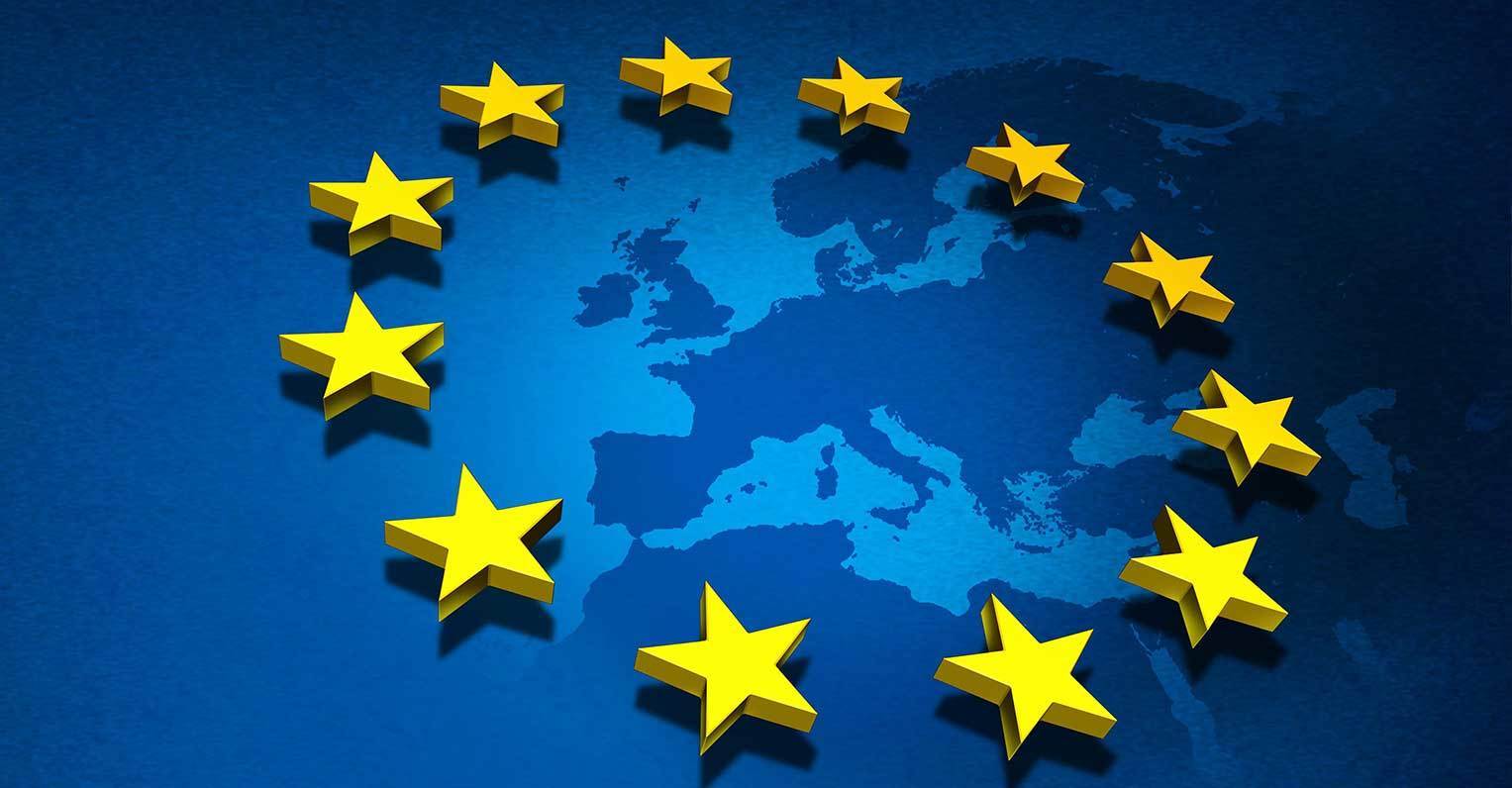The European Union (EU) is a political and economic union comprising 28 member states. The European Union was established under the Maastricht Treaty in 1993 and evolved from the European Coal and Steel Community (ECSC) and the European Economic Community (EEC) formed by six countries in 1957.

The goals of the European Union are:
- promote peace, its values and the well-being of its citizens
- offer freedom, security and justice without internal borders
- sustainable development based on balanced economic growth and price stability, a highly competitive market economy with full employment and social progress, and environmental protection
- combat social exclusion and discrimination
- promote scientific and technological progress
- enhance economic, social and territorial cohesion and solidarity among EU countries
- respect its rich cultural and linguistic diversity
- establish an economic and monetary union whose currency is the euro.
Malaysia in EU
Malaysia is officially represented in the European Union by Malaysian Embassies in 19 EU member states. This includes Austria, Belgium, Bosnia Herzegovina, Croatia, Czech Republic, Finland, France, Germany, Hungary, Ireland, Italy, Kosovo, Netherlands, Poland, Romania, Serbia, Spain, Sweden, and the United Kingdom.
Even though the FTA negotiations between the EU and Malaysia are on hold, a Sustainability Impact Assessment (SIA) was launched in support of FTA negotiations between the two partners.. The SIA seeks to assess how trade and trade-related provisions in the proposed FTA could potentially impact economic, social, human rights, and environmental elements in each trading partner and in other relevant countries.
To learn more about the SIA, go to the EU-Malaysia SIA website.
Malaysia in EU
Malaysia is officially represented in the European Union by Malaysian Embassies in 19 EU member states. This includes Austria, Belgium, Bosnia Herzegovina, Croatia, Czech Republic, Finland, France, Germany, Hungary, Ireland, Italy, Kosovo, Netherlands, Poland, Romania, Serbia, Spain, Sweden, and the United Kingdom.
Even though the FTA negotiations between the EU and Malaysia are on hold, a Sustainability Impact Assessment (SIA) was launched in support of FTA negotiations between the two partners.. The SIA seeks to assess how trade and trade-related provisions in the proposed FTA could potentially impact economic, social, human rights, and environmental elements in each trading partner and in other relevant countries.
To learn more about the SIA, go to the EU-Malaysia SIA website.
Trade picture
- Bilateral trade between Malaysia and The EU equalled € 39.8 billion in 2018.
- The EU is the third largest trading partner of Malaysia (after China and Singapore), accounting for 11.6% of the country’s total trade.
- In 2018, Malaysia became the EU’s 23rd largest trading partner in goods.
- Bilateral trade between the EU and Malaysia is dominated by industrial products. The EU mainly imports machinery and appliances and mainly exports electrical equipment and machinery (both ways industrial products account for more than 90% of trade).
- Other sectors of relevance in terms of EU imports from Malaysia are plastics and rubber and animal and vegetable fats and oils and in terms of exports, mechanical products.
- Although Malaysia has not been a major trading partner in services so far, opportunities have already been increasing due to its liberalisation policies and would even further advance with a FTA.
- In 2017, Foreign Direct Investment outward stocks in Malaysia were €24.5 billion.
Denmark in EU
Denmark joined the European Union in 1973, while the Faeroe Islands and Greenland currently are not part of the EU, but remain as associated Members. A large number of areas have greatly benefited from EU membership, both in terms of commerce and social activities. Denmark has retained 4 (3 Remains, as of July 2012) areas in which it choose not to join the EU common set of legislation.
The Edinburgh Agreement or Edinburgh Decision is a December 1992 agreement reached at a European Council meeting in Edinburgh, Scotland, that granted Denmark four exceptions to the Maastricht Treaty so that it could be ratified by Denmark.
This was necessary because, without all member states of the European Union ratifying it, it could not come into effect.
Denmark had first rejected the Maastricht treaty, but with the addition of the Edinburgh Agreement, ratified the treaty in a 1993 referendum. The member states that already ratified the Maastricht Treaty, did not have to do so again.
Trade and economy
- The most important sectors of Denmark’s economy in 2018 were public administration, defence, education, human health and social work activities (21.6%), wholesale and retail trade, transport, accommodation and food services (20.0%) and industry (18.0%).
- Intra-EU trade accounts for 61% of Denmark’s exports (Germany 16% and Sweden 11%), while outside the EU 8% go to the United States and 6% to Norway.
- In terms of imports, 70% come from EU Member States (Germany 22%, Sweden 12% and the Netherlands 8%), while outside the EU 7% come from China and 6% from Norway.
European Parliament
There are 12 members of the European Parliament from Denmark.
Council of the EU
In the Council of the EU, national ministers meet regularly to adopt EU laws and coordinate policies. Council meetings are regularly attended by representatives from the Danish government, depending on the policy area being addressed.
Presidency of the Council of the EU
The Council of the EU doesn’t have a permanent, single-person president (like e.g. the Commission or Parliament). Instead, its work is led by the country holding the Council presidency, which rotates every 6 months.
During these 6 months, ministers from that country’s government chair and help determine the agenda of Council meetings in each policy area, and facilitate dialogue with the other EU institutions.
Dates of Danish presidencies:
Jul-Dec 1973 | Jan-Jun 1978 | Jul-Dec 1982 | Jul-Dec 1987 | Jan-Jun 1993 | Jul-Dec 2002 | Jan-Jun 2012
European Commission
The Commissioner nominated by Denmark to the European Commission is Margrethe Vestager, Executive Vice-President for A Europe fit for the Digital Age.
The Commission is represented in each EU country by a local office, called a “representation”.
European Economic & Social Committee
Denmark has 9 representatives on the European Economic and Social Committee. This advisory body – representing employers, workers and other interest groups – is consulted on proposed laws, to get a better idea of the possible changes to work and social situations in member countries.
European Committee of the Regions
Denmark has 9 representatives on the European Committee of the Regions, the EU’s assembly of regional and local representatives. This advisory body is consulted on proposed laws, to ensure these laws take account of the perspective from each region of the EU.
Permanent representation to the EU
Denmark also communicates with the EU institutions through its permanent representation in Brussels. As Denmark’s “embassy to the EU”, its main task is to ensure that the country’s interests and policies are pursued as effectively as possible in the EU.
2018 figures for Denmark:
- Total EU spend in Denmark – 1.411 billion
(equivalent to 0.46 % of the Danish economy) - Total contribution to EU budget – 2.541 billion
(equivalent to 0.83 of the Danish economy)
